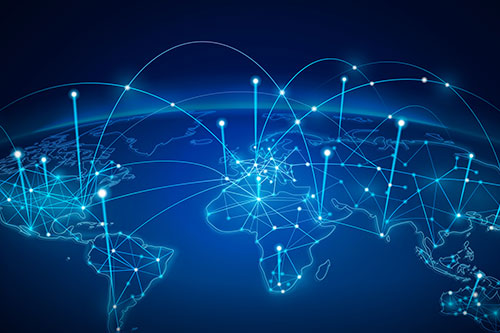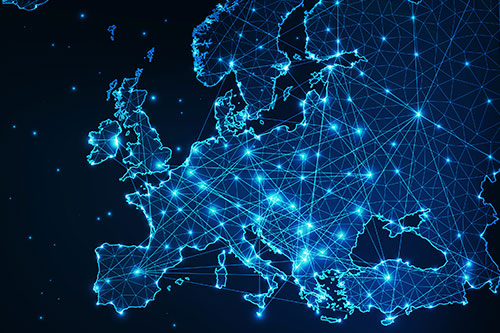Australia, Japan, & The US Will Help Fund New Cable
New undersea internet cable for Nauru, Kiribati and the Federated States of Micronesia will be funded by Australia, the US and Japan
 By ABC.Net.AU
By ABC.Net.AU
December 15, 2021
Australia, the United States and Japan have announced they will jointly fund the construction of an undersea cable to boost internet access in three tiny Pacific countries, as the Western allies seek to counter rising Chinese influence in the region.
Key points:
- To access high-speed internet, island nations in the Pacific need to route traffic through regional hubs in Sydney, Guam or Hawaii
- The undersea cable is the latest funding commitment from the Western allies in the Pacific's telecommunications sector
- Meanwhile, the Chinese government has denied any intent to use commercial internet cable for spying
However, the three allies did not specify how much the project would cost.
“The proposed undersea cable will provide faster, higher-quality and more-reliable and secure communications to approximately 100,000 people across three countries,” a joint statement from Australia, the US and Japan said.
“This will support increased economic growth, drive development opportunities and help to improve living standards as the region recovers from the severe impacts of COVID-19.”
For island nations in the Pacific to access high-speed internet, they need to route traffic through one of the three regional hubs: Sydney, Guam or Hawaii.
In the statement, Foreign Minister Marise Payne and the ministers from the other countries said the announcement was “more than an infrastructure investment”.
“It represents an enduring partnership to deliver practical and meaningful solutions at a time of unprecedented economic and strategic challenges in our region,” they said.
“This project builds on the strong foundations of trilateral collaboration between Australia, Japan and the United States in the Indo-Pacific.”
Regional security concerns behind internet cables
The development of the undersea cable is the latest funding commitment from the Western allies in the telecommunications sector of the Pacific.
It comes as the US and its Indo-Pacific allies are concerned that cables laid by China could compromise regional security.
Beijing has denied any intent to use commercial fibre-optic cables — which have far greater data capacity than satellites — for spying.
Back in 2016, the Solomon Islands government signed a deal with Chinese telecommunications giant Huawei to lay a cable to Australia.
To push out the arrangement Solomon Islands had with Huawei Marine, Australia paid for most of the Coral Sea Cable, which connects Port Moresby in Papua New Guinea and Honiara in the Solomon Islands to Sydney.
That deal cost Australia about $137 million.
The contract for Huawei Marine would have led to a cable between Honiara and Sydney being laid, which would have meant Chinese hardware had been connected to the backbone of Australia's domestic internet infrastructure.
“That was seen as a red line that Australia would not cross and so we jumped in with a better deal, providing the cable as a grant that would be implemented with a procurement partner of Australia's choosing — that wouldn't be Chinese,” director of the Lowy Institute's Pacific Island Program Jonathan Pryke said.
This was at a time when Australia had just banned Huawei from its 5G and NBN networks.
Huawei Marine also bid on the East Micronesia cable project that would have seen Nauru, Kiribati and the Federated States of Micronesia connect, via several other cables, to Guam, but the US reportedly had concerns about the Chinese firm's involvement.
No guarantees of speed or price improvements
Dr Amanda Watson from Australian National University has mapped cable projects across the Asia-Pacific region.
The proposed cable would increase bandwidth, or the amount of internet available, in the three Pacific nations.
“It's not guaranteed that it would reduce internet prices or improve speed because there would be other factors at play, such as competition in the market, other costs of operating in those markets, and so on,” Dr Watson told the ABC.
“We can't say for sure what will happen with regard to the prices that consumers will pay in those places, or even the speeds that they would experience.”
As the reasons for what led to the initial East Micronesia cable project falling over are not clear, it's difficult to clearly discern any broader geopolitical moves behind Sunday's announcement, Dr Watson said.
 By ABC.Net.AU
By ABC.Net.AU










